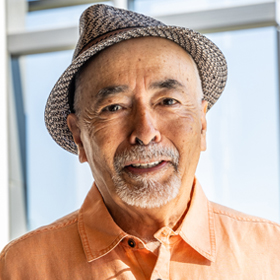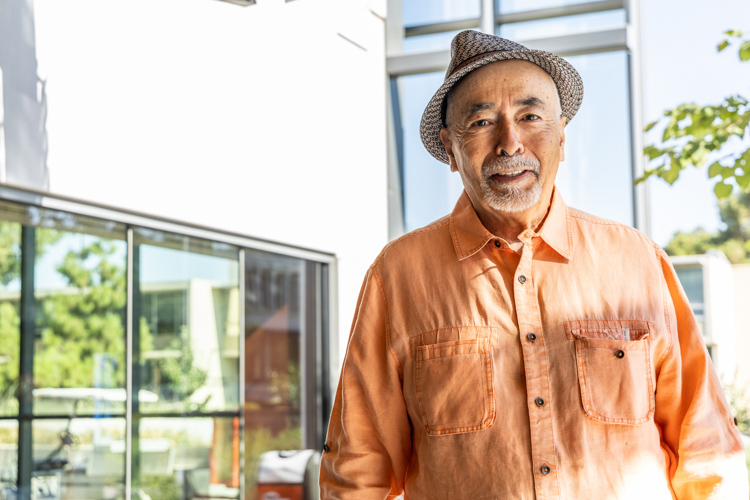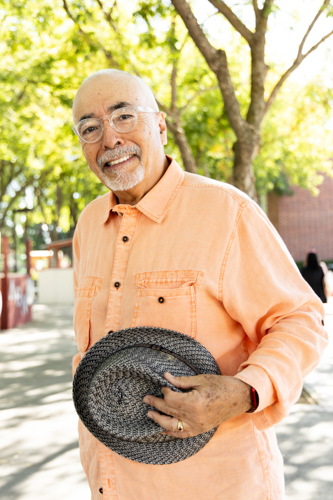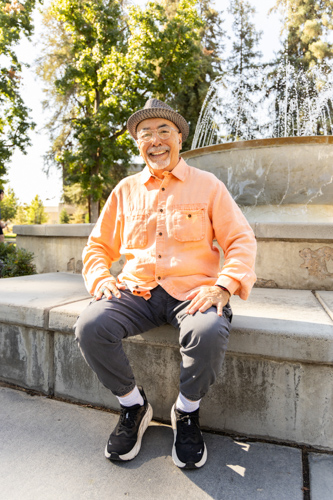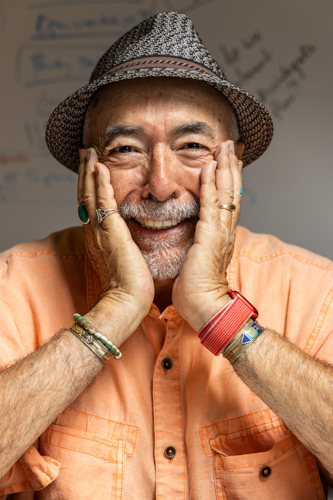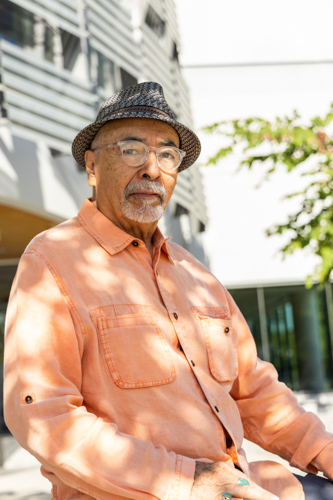About Juan's Work
Juan Felipe Herrera is a poet, educator, and writer uplifting Chicanx culture and amplifying shared experiences of solidarity and empowerment through poetry and prose for adults and children. Herrera’s literary output, in both English and Spanish, crosses genres and spans five decades; his work is united by deep empathy and joy for all groups in the act of artistic creation.
Herrera has chronicled the changing social and cultural dynamics of the Mexican-American community, from the activism of the Chicano Movement to the fraught politics of immigration and the U.S.-Mexico border today. In his 1974 publication Rebozos of Love / We have Woven / Sudor de Pueblos / On our Back, which was republished in 2021 as Rebozos of Love: Floricanto 1970–1974, Herrera exalts ideas embedded in the Chicanx nationalist movement while experimenting with linguistic syntax and structure. For example, the poems flow effortlessly between Spanish and English, and Herrera incorporates pre-Columbian history, Indigenous deities, language, and artistic motifs. Herrera addresses present-day concerns in Every Day We Get More Illegal (2020). He pays homage to unseen working-class laborers and the lives of immigrants precariously situated on the edges of society. Herrera also implores readers to resist dehumanizing labels and to show empathy for the vulnerable among us. In Notes on the Assemblage (2015), Herrera laments state violence inflicted upon citizens in the United States and elsewhere. The opening poem, “Ayotzinapa,” is a stream of consciousness, bilingual account of the killings of 43 Indigenous students from the Ayotzinapa Rural Teachers’ College, likely at the hands of the police in Guerrero, Mexico, in 2014. Herrera puts the reader in the position of both witness and victim in “Almost Livin’ Almost Dyin.” The poem, about police killing Black men in the United States, subtly shifts to include the reader in the collective first person “we.” In this way, Herrera imagines a future in which people are in solidarity with one another, no matter their differences.
In addition to poetry, Herrera has written several books for children. He recounts fond memories of his childhood among migrant farmworkers in California’s Central Valley in the picture book Calling the Doves / El canto de las palomas (2014). Jabberwalking (2018), an introduction to writing poetry for young readers, showcases Herrera’s delight in linguistic experimentation and lifelong devotion to teaching. A distinctive voice and inspiration for generations of writers, Herrera centers the unprotected while imbuing his work with hope and a sense of possibility.







